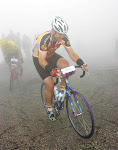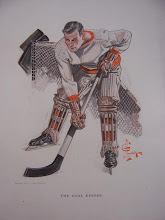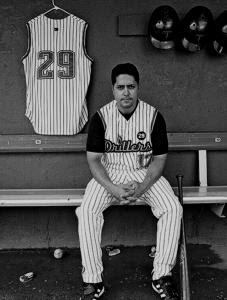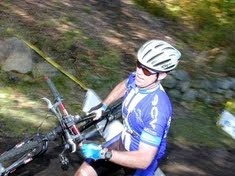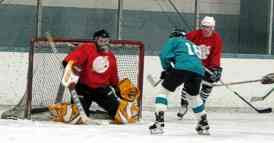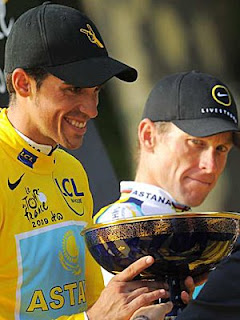
Boston, autumn in full bloom.
Under glorious blue skies late last week, I drove to Newburyport to pay my last respects to a friend and a mentor. Stepping out of my car, a cool, capricious breeze set the aging leaves shaking. It was, I thought, a perfect day for reflection. More so, it was a day that Fred Pearson would have absolutely loved.
Inside a comfortable, quiet Episcopal church on High Street, we bid our adieus to Frederick Gordon Neil Pearson, who passed away at the age of 86 earlier this month. The photo that adorned the memorial pamphlet was classic Fred: Sport coat and bow tie, cocktail in hand, the ocean in the background and an impish grin creasing his worldly face. This Yale man was always the epitome of Ivy League sophistication off the ice. On the ice was another matter entirely, and it was on the ice that I knew Fred Pearson best.
Hockey was in Fred Pearson's blood. It coursed through every fiber of his being. Born in Beverly, he would walk from his house on the hill where Beverly Hospital now stands down to Kelleher's Ice Pond, building the stamina that served him so well over eight decades. He was schooled in Canada before prepping at Hotchkiss and eventually matriculating at Yale. There, in early January of 1946, Pearson's Yale team pulled off a stunning upset, snapping Dartmouth's 45-game winning streak, 6-4. Fred Pearson scored twice to lead the Elis. In 1948, he was tabbed to represent the United States at the Winter Olympic Games in St. Moritz, Switzerland. Afterward, he continued to play, even throughout his long professional career as an advertising executive with Channel 38.
Fred played football. He played rugby. He cycled. He sailed. He flew. The man, it seemed, never stopped. Never. And he never stopped talking about his exploits, though not in a boastful way. He was a storyteller, and each tale was dressed up with his trademark twinkle. I knew Fred for almost a quarter century through our time together with the North Shore Skating Association. This loosely-knit group of hockey lifers was first formed roughly 30 years ago, and featured some of the most distinguished residents on the North Shore, including Caleb Loring, the Clarks of Hamilton, Dick Villa of Manchester-by-the-Sea, Robert Buell of Boxford, and many others. We first played at the old outdoor rink behind Gordon College in Wenham, and then moved to the Johnson Rink at the Pingree School in Hamilton. It was a classic collection of puck-lovers, with white-collar finance guys rubbing elbows with blue-collared craftsmen and laborers. Outside the rink, Mercedes and Lexuses and Escalades were parked alongside Buicks, Subarus and pick-up trucks.
Inside, though, all those trappings of wealth or social standing were stripped away. All that matter was how you played. Fred Pearson, even in his 80s, played with a fire and energy that few could match. In that sense, he was a constant inspiration, to me and to everyone else who stepped on the ice. He never once instructed me how to play; he simply led by example. I thought of that often during Fred's memorial service. As I surveyed the small crowd, I was encouraged to see that so many of Fred's hockey buddies from the N.S.S.A. had made the effort to pay their last respects. Many were wearing the reversible black and yellow jerseys of the N.S.S.A. brotherhood.
It struck me, sitting in that pew, that I would never again walk into a Pingree locker room (not on this earth, anyway) when Fred Pearson was holding court. It was much like my Dad's funeral. The finality of Dad's death didn't hit me until I saw the casket. And then I just melted, an inconsolable child of 13 consumed by raw emotion. Now, almost 40 years later, I felt many of those same stirrings deep in my gut. Sometimes death has a funny way of opening our eyes, and I understood just how much I cared for Fred Pearson.
Part of me couldn't help but think that Fred would be embarrassed by all this attention. Another part felt equally as strong that the man would be genuinely touched to know that so many cared so deeply. As a writer, I always wanted to tell the story about Fred's many adventures, but he wanted no part of it. I only asked once, and his terse refusal short-circuited any future requests. I had no choice but to respect Fred's wishes. The cynical journalist in me often suspected he didn't want any tall tales held up to the light of day. More likely the truth was that Fred Pearson considered the locker room bond sacred. The tales told there were for this inner circle only, and not public consumption.
Memorial services, however, are a different venue. So I stood up, and asked for the microphone. I turned to face the majority of the attendees, and admitted that when it came to capturing the essence of a man like Fred Pearson, the mind just reeled. I mentioned that my wife likes to tease me that the terms "Over 50" and "hockey" should be mutually exclusive, to which I typically respond that Fred Pearson only has 34 years on me. I spoke about coaching my daughter's Agawam Squirt hockey team, and how I preach that this beautiful game accentuates all that is good about competition. It teaches us perseverance, integrity, grit, honesty. More than any other sport, I believe, hockey rewards those who give the greatest effort. It celebrates teamwork above individual play, and does not suffer fools or slackers kindly. Fred Pearson, I said, embodied the great traits of the game better than anyone I knew.
Last, I reminded the N.S.S.A. players, and the general audience, that we all had an obligation to honor Fred's legacy by striving to live life fully, each day. I heard my voice breaking, and quietly returned the microphone to the minister.
Of course, there were far too many stories to tell in such a brief address. I forgot to mention that, as a goaltender, I had a special relationship with Fred. When Fred was on my team, I never saw him, as he had a particular disdain for back checking ("He was conserving his energy," quipped Scott Brown, another N.S.S.A. regular). But when Fred was playing for the opposing team, there was no avoiding him. Other speakers mentioned Fred's tenacity, and heavy stick, but opposing goalies got to feel it on a regular basis. Any loose puck near the crease was fair game. If Fred got to it first, it often meant a goal. If the goalie got the puck, he would usually get the business end of Fred's blade across the back of the glove. And as much as I would yell at Fred on the rare occasion when I was the recipient of one of those patented Pearson slashes, I admired the man's passion.
Don Pasquarello, an emergency room doctor at Beverly Hospital, spoke of how he would cringe whenever Fred would slam into a player twice his size, and inevitably go crashing to the ice. What he didn't mention is how angry Fred got if he suspected any one was going easy on him, out of respect for his advanced years. Fred Pearson played the game the right way, hard-nosed and straightforward, until his last shift.
There is another great story that Todd Lampert, owner of Todd's Sporting Goods in Beverly, tells. One night at Pingree, Fred, then in his early 80s, was getting ready for another whirl around the ice with his N.S.S.A. gang. Lampert, who was on the ice beforehand with the Beverly High hockey team, brought him into the Panthers' locker room, and said, "I want you to meet Fred Pearson. Mr. Pearson played for the United States at the 1948 Winter Olympics. And you can watch him, because he's going out to play right now." The kids' response stunned Lampert. They stood and applauded.
In this day and age of sports overload, where sports radio rules the airwaves with a bunch of belligerent fans and know-it-all announcers, where once-proud sports magazines give undo coverage to "fantasy" games, and where our youth find themselves in the midst of an obesity epidemic, Fred Pearson reminded us that the true joy of sports comes not from watching, but from participating. It was clear, listening to others sing Fred's praises, that this was not a man for idle chatter. He was a man of action. While many of us talk about doing things, Fred's raison d'etre was in the "doing."
Leaving the church, walking into a perfect fall afternoon, I stopped to chat with John Fiske, another of the N.S.S.A. brethren. He relayed that Fred, following a devastating car accident, had told him emphatically last May that "I'll be back." Like the rest of us, John never had a reason to doubt such bravado, because Fred always backed up his words. John then sadly shrugged his shoulders in that unmistakable what-are-you-going-to-do way. As we said goodbye, John reminded me of Fred's opt-repeated salute as he left the rink: "Good night, fellow warriors." Fred Pearson was a warrior, in the truest sense of the word. Brave, noble, decisive, honorable, loyal. He will be greatly missed, both on and off the ice.
Best,
-Brion
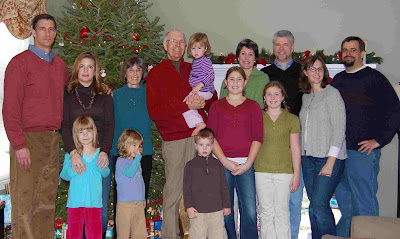 Boston, Christmas Eve!
Boston, Christmas Eve!